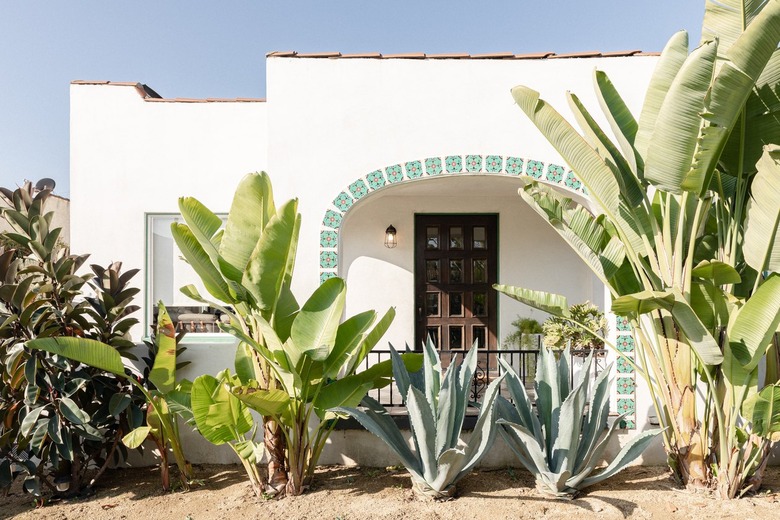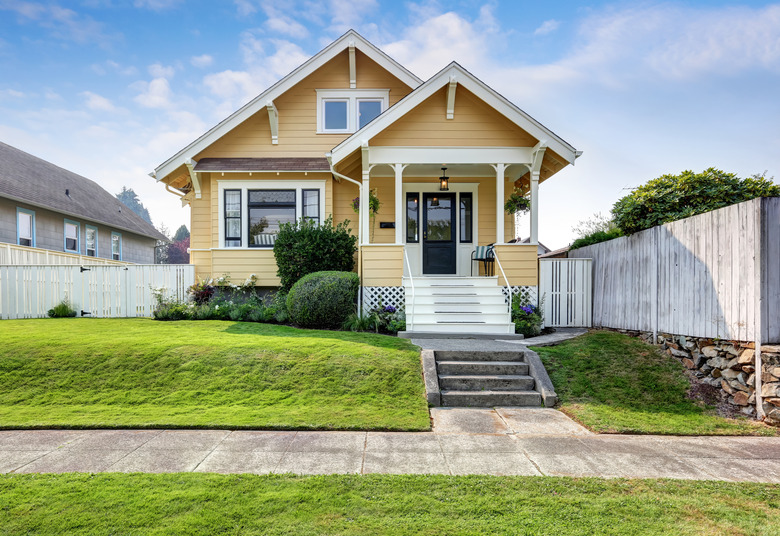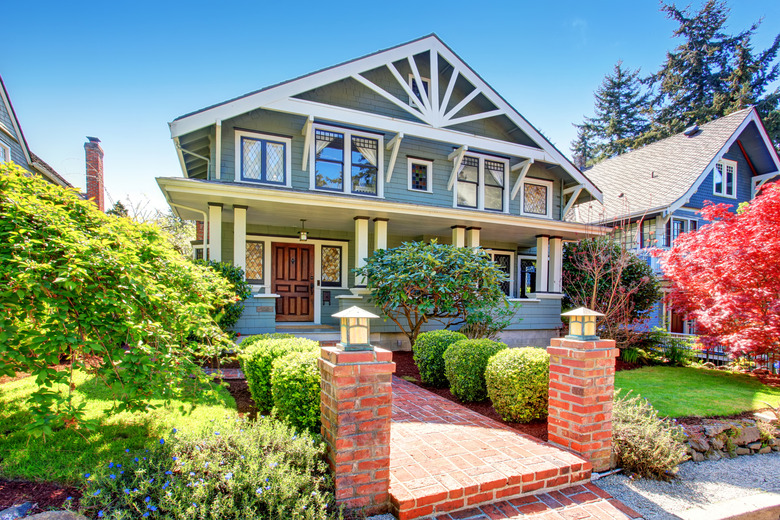The 8 Hidden Costs Of Buying A Home
One of the sad truths you learn as you grow up is that everything has hidden costs. Saving for a car? Don't forget registration and insurance costs. Buying online? Shipping and taxes need to be considered.
Buying a home is not an exception to the rule, and the listing price of the home is just the beginning. First-time homebuyers need more cash in their bank account than just the amount of the down payment to make the homebuying happen. But it's always better to learn about these hidden costs and plan for them than to be surprised in escrow.
Down Payment and Mortgage
Down Payment and Mortgage
First-time homebuyers who do their homework know how much of a mortgage they are going to be able to afford. They've calculated their debt-to-equity ratio and have selected a loan with a down payment and monthly payments they can afford. That makes homebuying much easier since the buyers can limit their search to homes for sale within their budget. Yet, they might not have all bases covered.
Make no mistake — the down payment and an affordable mortgage are critical financial elements of a real estate purchase. The down payment is usually an amount for which you have to save, and a mortgage may be the biggest debt you'll ever carry and one you may well be paying off for 30 years. While these are the biggest costs involved in homebuying, they are not the only ones. If you put every last dime you've saved into the down payment, you may be left high and dry when it comes to closing escrow since you need cash for quite a few other costs.
1. Earnest Money
1. Earnest Money
With a name like "earnest money," it's not hard to guess that this deposit is to prove to a seller that you are earnest in your desire to buy. This is "good faith" money you may be asked to pay at the same time you make the offer — before you sign on the dotted line. It is not unlike a security deposit. Earnest money tells the seller that you aren't just flirting with their house but are contemplating a serious relationship.
How much earnest money is required? The answer depends on the location of the home and the deal you make. Earnest money can be between 1 and 5 percent of the home purchase price or a set amount, like $1,000 (if you're uncertain about the amount, you can always ask your realtor for advice). This money protects the seller if the contract falls through under circumstances unrelated to a contingency of the sale. For example, if the house doesn't pass inspection, the buyer gets the earnest money back. However, if you change your mind and make an offer on another home, the seller usually keeps the earnest money. If you go ahead and buy the home, the earnest money will go toward the purchase.
2. Inspections
2. Inspections
You don't want to start homeownership out with serious issues that need costly repairs. Those would be true hidden costs, and a first-time homebuyer cannot afford to take this risk. That's why most first-time homebuyers pay for a home inspection after they make an offer and it is accepted. You select a certified home inspector and pay him to inspect the house, looking for structural issues, mechanical issues or other issues. At that stage in the homebuying process, if repairs are required, you can still negotiate with the seller about who will pay what part of the repairs. A buyer has more negotiating clout before closing the purchase.
A home inspection can cost between $300 and $500 or even more depending on where you buy. Inspections aren't mandated by law, but they are utterly necessary. You don't want to risk having to pay 100 percent of repair costs in the new home that could cost thousands or even tens of thousands of dollars. On the downside, you don't get home inspection money back if the deal falls through.
3. Home Warranty
3. Home Warranty
If you are buying a brand-new home unused by anyone, it likely has brand-new appliances with their own warranties. If the home is an older one, the appliances aren't likely to have current manufacturer warranties, which could mean big bucks to repair or replace them. First-time homeowners can hedge their bets by getting a home warranty. They generally cost several hundred dollars per year, but they can cover repairs of kitchen appliances, plumbing, ceiling and exhaust fans, the furnace and even the sump pump. Be sure to read the fine print before purchasing a home warranty policy. Many are made to sound better than they really are.
4. Closing Costs
4. Closing Costs
Talk about an umbrella term: "Closing costs" is a general term that includes all of the many and varied fees a part owes when a real estate purchase closes. There are more than a few of these fees, some higher than others, including mortgage origination fees, attorney fees, prepaid homeowners' association fees and taxes, title insurance, recording fees, surveys and notary fees.
Closing costs vary from one market to the next and among lenders as well. Many of the costs are small in and of themselves, like recording fees, but others are high, like mortgage points. All told, the amount isn't insubstantial. Count on 2 to 5 percent of the value of your house. If that doesn't sound too bad, it comes to $6,000 to $15,000 on a $300,000 home. You need to plan ahead for closing fees since they can impact your budget by limiting cash on hand for other payments.
While closing costs are often paid at the closing of the deal, some buyers roll them into the loan. That's one way to pay less at the closing, but it also means your mortgage will be higher.
5. Property Taxes
5. Property Taxes
Property taxes are annual taxes imposed by the local government on real estate and other types of property. The amount a homeowner owes depends on the assessed value of the home and the property on which it is located. The tax rate is set by individual counties and cities. These are important taxes for local governments that rely heavily on property taxes to fund city projects, including schools, law enforcement and road improvements.
Property tax rates vary widely across the country and even within a state. You'll want to talk to your real estate agent to learn the tax rate on a prospective home before you sign on the dotted line. That way, you won't be stunned at closing to learn that you are required to put into escrow (a type of account that holds money for taxes and insurance) your first year of property taxes. Your lender will pay your real property taxes out of those escrow funds or will add the property tax amount into your monthly mortgage payment.
You will only owe property taxes for the time you own the home. If the seller has prepaid property tax for some months, you will have to reimburse them at closing for your prorated portion of the tax. It's important to keep in mind that the government could reassess the property after you move in, determining that it is worth more than you paid for it. If this happens, the good news is that you have more equity than you thought. The bad news is that they will hit you with a supplemental property tax bill.
6. Homeowners' Insurance
6. Homeowners' Insurance
Homeowners' insurance is coverage for damage to your home as well as liability coverage in case people get hurt on your property. Like property taxes, homeowners' insurance is often paid to the insurance company out of escrow by the lender, but it's your escrow account. Just because you don't write the check, that doesn't mean that you don't pay for the insurance. You will end up paying both your taxes and your homeowners' insurance, often through a monthly payment added to your mortgage payments.
So, how much can you expect? The average annual homeowners' insurance payment is currently $1,244 for a $200,000 home with a $1,000 deductible and $300,000 liability coverage. That's just an average, and many states are higher. In Florida, hurricanes and storms drive up insurance costs, so the homeowners' insurance average for the same home and level of coverage can cost three times as much. In Oklahoma, the most expensive state for homeowners' insurance, count on $2,140 more annually than the national average.
7. Private Mortgage Insurance
7. Private Mortgage Insurance
Private mortgage insurance, or PMI, is the price you pay for getting a mortgage without putting 20 percent down on the purchase. If your lender agrees to 3 percent, 5 percent or 10 percent down, you will start paying PMI the minute you close the deal.
Lenders want to make money on a home mortgage, but even more, they don't want to lose money. Loss could happen if home prices dive, and the borrower stops paying the monthly mortgage. The lender has a security interest in the property that it can exercise if a borrower defaults on payments, but foreclosing and selling only works well for the lender if the value of the property is more than the amount owed. With 20 percent down, the borrower has immediate equity in the property, and the lender is more secure.
With a lower down payment, the lender requires that you buy private mortgage insurance. This PMI coverage protects the lender if you default on your mortgage, and the home goes into foreclosure. You will have to pay PMI every month until you have 20 percent equity in the home.
Private mortgage insurance generally costs between 0.05 percent and 1 percent of the entire loan per year. For example, if a buyer pays $300,000 for a home and puts nothing down, they could pay up to $3,000 a year in PMI.
8. HOA/Condo Fees
8. HOA/Condo Fees
Not everyone is going to have to worry about HOA fees or condo fees, but if the new home happens to be part of a housing community with a homeowners' association or a condominium association, you will. These types of housing have shared community features. This may be as simple as a shared entryway or a backyard in the case of a condo, but it can also include a wide range of amenities, like a garden, a roof deck, laundry facilities, a swimming pool, a tennis court or even a doorman. In general, the more luxurious the amenities, the more the HOA or condo fees will cost.
This has many advantages. Your homeowners' association will maintain the common areas, take care of the landscaping and make common area repairs. A condo association will pay for anchoring the building foundation to the ground to safeguard the building from earthquakes in areas where this is needed. Through your monthly HOA or condo fee payment, you will end up paying your share.
Anyone buying a condo or a home in an HOA community needs to get complete and accurate information about the association's budget and cash reserves. If a repair needs to be made in excess of the normal annual budget, you and all your co-owners can be hit with a special assessment to raise money for the project.


